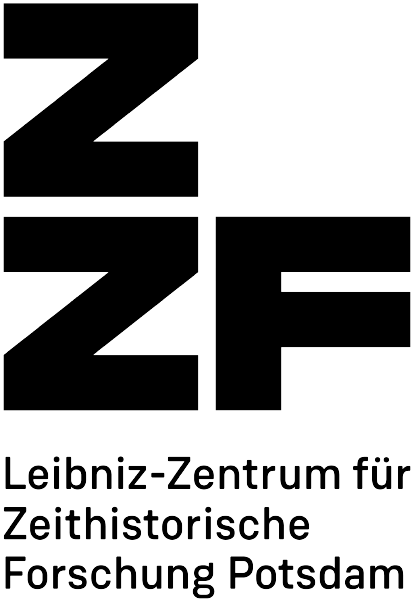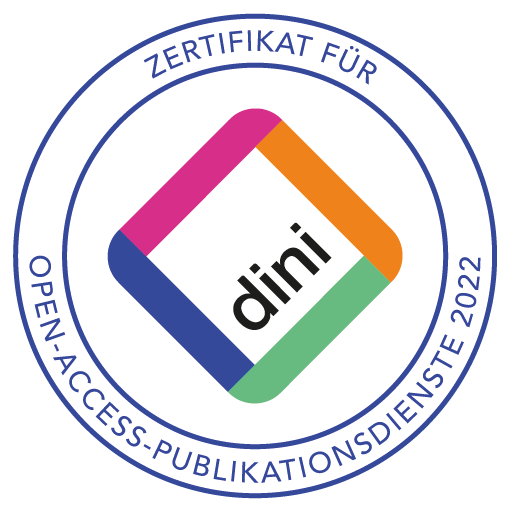regional übergreifend
Refine
Year of publication
Document Type
- Journal Article (38)
- Online Publication (12)
- Preprint (1)
Language
- English (51) (remove)
Keywords
- Forschungsfelder (1)
- Methoden (1)
- Periodisierung (1)
After World War II, many historians in the German-speaking world thought of the relationship between anthropology and history as being largely synonymous with that of ›everyday life‹ (Alltag) and ›structure‹. As Jürgen Kocka (b. 1941) wrote in a retrospective statement to the Zurich historian Rudolf Braun (1930–2012), one of the few prominent figures of ›ethnographic‹ social history especially in the 1970s and 1980s: ›For while we, a younger generation of social historians, have turned to the large structures and processes that conditioned, encompassed and shaped people’s lives, Braun has always supported us, but he insisted – in an untimely but fruitful way – on not missing the people’s »inside«: the experiences and habits, the hopes and disappointments, the everyday life and mentalities of common people in the age of industrialization.‹
This article explores Swiss-Chinese economic entanglements since the 1970s. First, we show how China opened its economy to foreign direct investment (FDI), with Switzerland as a pioneer for Joint Ventures (JVs) in China (1970s–2000s). Second, we outline how Chinese technologies spread abroad, focusing on Chinese telecommunication companies in Switzerland (2000s–2020s). Representatives from the Swiss companies envisioned immense market opportunities in China. Their Chinese counterparts saw JVs as an opportunity to integrate into the world’s production system and acquire technological know-how as well as foreign currency. Building on and further developing this knowledge has enabled Chinese companies such as Huawei to become global market leaders. Technologies and investments are now making their way back to Europe, although not without contestation. In order to better understand Sino-Swiss and other global economic interactions, we need to creatively combine historical and ethnographic methods. This approach highlights the motivations and debates at both the giving and receiving ends, and how they change over time, thereby challenging one-sided narratives of Western and Chinese global capital flows and technology acquisitions.
In this article, we provide a new approach to circular economy in architecture based on the juxtaposition of historical sources and ethnographic data. We bring into dialogue historical practices of rubble reuse in Warsaw after the Second World War with contemporary efforts to salvage components in buildings slated for demolition in Vienna. The analysis of archival and published documents, construction and architecture magazines, and visual sources is combined with a participant observation in a start-up company in Vienna. Our research methods have led us to respond critically to the solutions presented by the current debates on the reuse of construction and demolition waste. For past and present reuse practices, we uncover and scrutinise a complex social and bodily reality often obscured by the images of seamless and endless circulation of construction materials promoted by policymakers, industry leaders, architecture professionals, and positivist academic researchers.
Historical Comparison
(2024)
In his article for Docupedia, Hartmut Kaelble shows that the methodology and practice of historical comparison – as well as the fields and periods of comparison – have changed considerably in recent decades. Now that the theoretical discussions of the 1990s about historical comparison have largely concluded, it is a firmly established, independent part of transnational history.
In this text, Katja Stopka argues for closer cooperation between historical and literary studies, both of which are text-based disciplines that work in ways oriented towards source materials and yet remain critical of the textual foundations on which they stand. History and literary researchers take writing and reading as their subject of inquiry; they collect and organize archives of written records, use these archives as repositories of knowledge, and in turn draw on these holdings, for example in critical examinations of cultural patterns of reflection, or historical perceptions in need of correction.
This article explores the connection between genocide, language and language consciousness by tracing the strange biography of one Yiddish neologism: shabreven. During the Holocaust, the word came to mean both ›looting‹ and ›taking ownerless property‹. It stoked moral and etymological debate among Yiddish speakers in the Warsaw ghetto, while also occupying a prominent position in postwar Polish and Zionist discourses. The term shifted between different semantic, ethical and cultural fields, navigating a delicate balance between various meanings and norms. The discussions around this term help to shed light on key questions: What were the motivations for the study of Holocaust Yiddish neologisms? How did this early postwar Yiddish philological discourse differ from its parallel in German? Shabreven became both a symbol of the genocidal collapse of language and a tool for regaining victim agency in speech.
The Language of Eichmann in Jerusalem. Nazi German and Other Forms of German in the 1961 Trial
(2024)
The Eichmann trial granted the German language a degree of audibility unprecedented in the short history of the State of Israel, with the defendant, the judges, prosecutors, and witnesses frequently resorting to speaking in German. Drawing on archival materials, protocols, footage, and press reports, this article shows how the Eichmann trial brought to the surface several historical tensions around the postwar status of the German language. The various forms of German heard in the courtroom challenged notions of German as a Nazi language and contributed to a gradual mitigation of its status as a tainted language. The article concludes by reassessing Hannah Arendt’s 1963 Eichmann in Jerusalem and specifically her postulate that Eichmann’s language faithfully reflected his mindset. It is argued that Arendt’s understanding of Eichmann’s language echoed prewar ideas on German’s distinctive power.
Few of Hannah Arendt’s declarations have had as enduringly a controversial legacy as the one she gave in her famous 1964 West German television conversation with Günter Gaus, proclaiming uncompromised loyalty to her first language – German – despite Hitler. The statement was misconstrued as a privileging of the language of the perpetrators and expressing a bias against Eastern European Jews. In conversation with the recent ›Taytsh turn‹ (Saul Zaritt) in Yiddish Studies, this article focuses instead on two Yiddish newspaper articles published by Arendt in 1942 and 1944 and explores what I call a ›Taytsh move‹ in Arendtʼs language politics. Taytsh, an alternative name for the Yiddish language meaning, literally, German, foregrounds (Jewish) cultures’ inherent translational mode and interconnectivity with the world that makes and sustains these cultures. Arendt reactivated the inherent unbordered nature of languages – with an awareness of the dangers of monolingualism; for the sake of overcoming reductive constructions of Jewishness and modern identity; against the atomizing forces of fascism.
After a brief conceptual history of "energy," Rüdiger Graf shows how energy history emerged as a transdisciplinary scholarly project and outlines its main themes, questions, and narratives. He introduces the various energy histories and analyzes how they address energy production, the economic and political dimensions of energy, and the social and cultural history of energy consumption. He concludes by asking whether energy history is a subfield of historiography or whether it can rightly be considered an indispensable historiographical category that must be considered in any historiographical study.
As Hannah Arendt anticipated in 1951, refugees have become a major issue in contemporary societies. Writing just three years after the Universal Declaration of Human Rights had been adopted in 1948, Arendt argued that refugees exposed a fundamental tension between universal human rights and the sovereignty of nation-states. For Arendt, human rights were an abstraction; the only real rights were those possessed by citizens.

